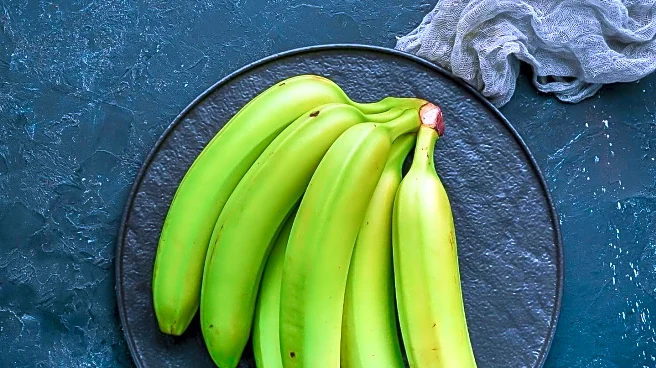What is the story about?
What's Happening?
Recent research led by Hai-Jun Gan from Nanjing University has highlighted potential health risks associated with microplastics leaching from polypropylene cutting boards into food. The study involved preparing mouse diets on plastic cutting boards made from polypropylene and polyethylene over periods of four and twelve weeks. It was found that polypropylene boards released more microplastic particles compared to polyethylene boards, leading to increased inflammation and gut barrier stress in mice. The World Health Organization has noted that while microplastics in drinking water pose a low health risk, the impact of microplastics in food remains uncertain.
Why It's Important?
The findings underscore the growing concern over microplastics in everyday kitchen tools and their potential health implications. As microplastics have been detected in human blood and linked to cardiovascular issues, this study suggests that exposure through food preparation could be significant. The research calls for increased awareness and possibly regulatory measures to mitigate microplastic exposure from kitchen utensils, which could impact consumer safety standards and manufacturing practices in the U.S. and globally.
What's Next?
Further research is needed to track human exposure to microplastics from kitchen tools and to develop guidelines for safer food preparation practices. The study suggests replacing old plastic boards more frequently and avoiding harsh scraping to reduce microplastic release. Regulatory bodies may consider revising safety standards for kitchen utensils to address these findings.
















